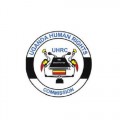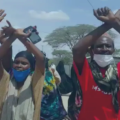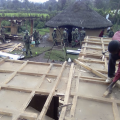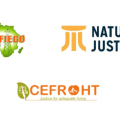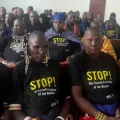At least 401 defenders killed in 26 countries for their peaceful work in 2022
Despite an assault on human rights and the rule of law in many countries, human rights defenders (HRDs) showed remarkable courage and persistence in advocating for more democratic, just and inclusive societies in 2022, Front Line Defenders said today as it launched a new report.
Front Line Defenders’ Global Analysis 2022 gives a panorama of the threats faced by HRDs in all regions of the world.
The report also names 401 HRDs killed in 26 countries in 2022 – based on statistics by the HRD Memorial, a collective initiative of human rights organisations working to collect and verify data on the killings of HRDs each year.
“In a grim milestone, for the first time we saw more than 400 targeted killings of human rights defenders in 2022. While Latin America remained the deadliest region in the world for human rights defenders, we also saw a more dangerous landscape for defenders in the context of Russia’s full-scale invasion of Ukraine,” said Olive Moore, Interim Director of Front Line Defenders.
“These human rights defenders were deliberately targeted and killed because of their human rights work. Because they choose to speak out and challenge injustice, they paid for it with their lives.
“The Global Analysis gives a panorama of the scope and severity of states’ crackdowns on human rights defenders. But it also paints a picture of remarkable resilience – it is a testament to HRDs and their organisations, networks and social movements that, across nearly all countries, they pushed back against worsening economic conditions, deepening authoritarianism and the climate crisis to stand up for collective rights.”
Increase in targeted killings
In 2022, the HRD Memorial investigated and verified the killings of 401 HRDs in 26 countries – compared to 358 HRDs killed in 35 countries in 2021.
Five countries – Colombia, Ukraine, Mexico, Brazil and Honduras – accounted for over 80% of killings, according to HRD Memorial data. Colombia alone accounted for 46% of the total, with at least 186 killings documented and verified by HRD Memorial partner Somos Defensores to date. Defenders working on land, indigenous peoples’ and environmental rights were the most frequently targeted sector, accounting for almost half (48%) of the total killings.
In the context of Russia’s full-scale invasion of Ukraine, defenders engaged on humanitarian response and human rights journalists were also specifically targeted, with at least 50 documented killings by Russian military forces.
Wide array of threats
Global Analysis 2022 data is based on more than 1,500 threats and violations reported to Front Line Defenders, and is disaggregated by region, type of threat, sector of human rights work and gender.
The main threats HRDs reported to Front Line Defenders in 2022 included: arrest or detention (19.5%); legal action (14.2%); physical attack (12.8%); death threats (10.9%); and surveillance (9.6%). In Asia and the Americas, death threats were the most frequent violation against defenders; in Africa it was arrest and detention; while in ECA and MENA it was legal action against HRDs.
Women HRDs (WHRDs) were frequently targeted with death threats, which accounted for the third most common violation against them. Physical violence was the most prevalent violation reported by trans and gender variant/gender nonconforming HRDs.
The five most targeted sectors of human rights defence were: environmental, land and indigenous peoples’ rights (11%); freedom of expression (10%); protest movement/ freedom of assembly (9%); women’s rights (7%); and impunity and access to justice (6%).
Women on the front lines of conflicts and crises
WHRDs and their movements played a critical role in countering the onslaught against human rights in 2022.
Throughout the year, in many countries including Afghanistan, the DRC, El Salvador, Iran, Myanmar, Sudan and Ukraine, WHRDs continued to mobilise against and denounce the most repressive authoritarian regimes and occupying forces.
For this, they paid a heavy and gendered cost, including attacks against them and their families, online smear campaigns and defamation, sexual violence and other violations impacting their mental health and well-being.
Rampant criminalisation of HRDs
Taken as a broader trend, criminalisation of HRDs – in the form of arrest, detention and legal action – was the most prominent form of attack seen in the data, comprising over a third (34%) of all violations. The widespread and arbitrary use of counter-terrorism laws to detain and prosecute HRDs depleted their morale, capacities and resources.
Although it took different forms in different countries, authorities in Belarus, India, Nicaragua, the Occupied Palestinian Territories and Zimbabwe, among others, used counter-terrorism and other restrictive laws to subject defenders and their organisations to repeated arrests, office raids, interrogations, threats of closure and actual shutdowns, among other tactics.
Globally, the most commonly cited legal charges against HRDs included: other criminal charges (21.8%); national/state security/sedition (19.0%); terrorism/membership or support of a terrorist organisation (12.8%); defamation/Insulting state/damaging national unity (10.1%); and spreading fake news or rumours/propaganda (9.0%).
Governments and private companies targeted HRDs with a range of digital threats. The most commonly cited were: internet/social media/website blockage (22.9%); online threat of violence/harassment (9.4%); confiscated devices computers/phone (8.7%); physical surveillance (8.3%); and doxxing (8.3%).
“Repressive governments around the world have weaponised the law against human rights defenders in a bid to silence them and stymie their work, and defenders have borne the brunt of legal and other persecution as well as a host of digital and physical threats,” said Olive Moore.
“But this ongoing harassment has failed to deter human rights defenders from continuing their work; if anything, it has galvanised them to keep countering the repression and standing up for justice. The international community must stand in solidarity with them, and do all they can to protect defenders.”
The Global Analysis notes that the year also saw positive advances in international norms to protect HRDs, including the appointment of a Special Rapporteur on Environmental Defenders and a proposed EU directive on corporate sustainability due diligence. However, protection of human rights defenders globally still falls far short of what is needed, and requires concerted attention and action by all Governments.
Source: Frontline Defenders
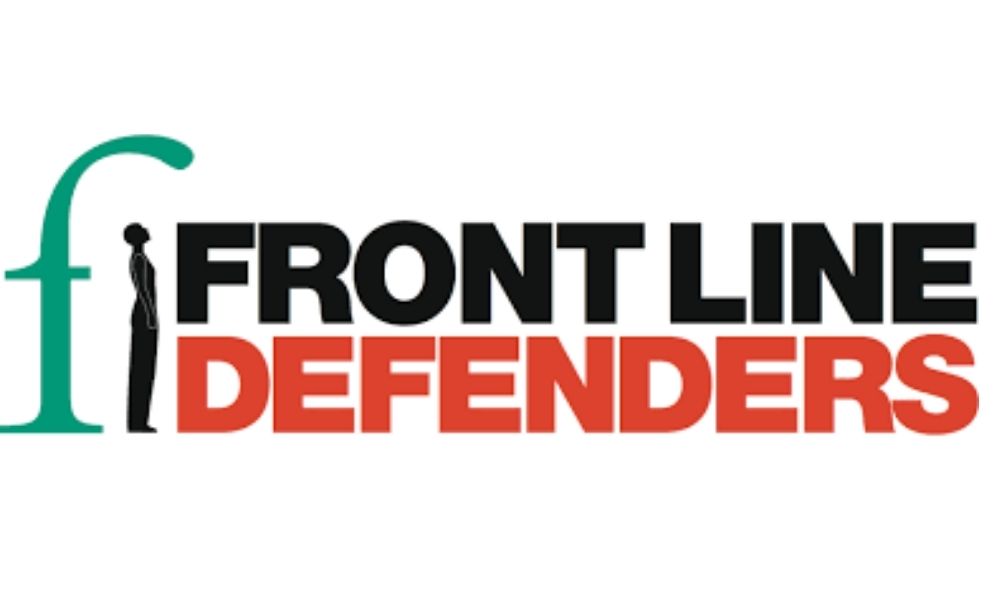

 MEDIA FOR CHANGE NETWORK1 week ago
MEDIA FOR CHANGE NETWORK1 week ago
 MEDIA FOR CHANGE NETWORK2 weeks ago
MEDIA FOR CHANGE NETWORK2 weeks ago
 FARM NEWS1 week ago
FARM NEWS1 week ago
 MEDIA FOR CHANGE NETWORK4 days ago
MEDIA FOR CHANGE NETWORK4 days ago
 MEDIA FOR CHANGE NETWORK4 days ago
MEDIA FOR CHANGE NETWORK4 days ago
 MEDIA FOR CHANGE NETWORK1 day ago
MEDIA FOR CHANGE NETWORK1 day ago




